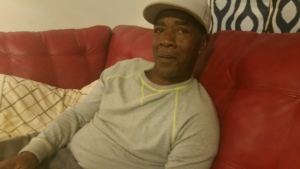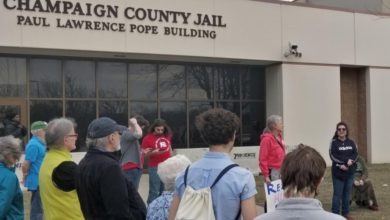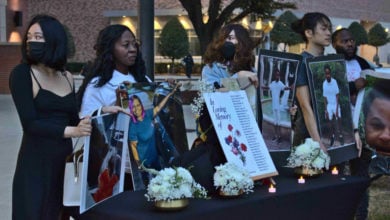
So many stories of the suffering and also organizing that is done behind prison walls never reach the outside. Today, Liberation News spoke with Alvin, or “Catfish” as we call him in this part of town, recruited by the Angola 3 from solitary confinement. He told a story of what it was like to be in prison living under the hard-won demands of the Angola 3: end to segregation, violence and prison rape. He was mentored by Herman Wallace as Alvin’s access allowed him into that part of Louisiana State Penitentiary.
“They were in Angola when I got to Angola. I met them, but I knew the stories of who they are and we all became friends. Of course, inside we called Herman “Hook.”
We paused, reflecting on Herman Wallace’s three days of freedom, passing away just as he got away from a prison that had once been an actual slave plantation.
Catfish pointed out the obvious that “prison is not like what they show on TV,” referencing the same ills of class society that are found outside the walls.
“They were innocent, we knew it was a lie,” he said, shaking his head affirmatively when I brought up that even the wife of the white prison guard who was killed during a rebellion called for the freedom of the Angola 3. “They were framed.”
Catfish explained, “Before, everyone was separated by race. There were Black and white dormitories, but under a desegregated prison we got to build relations with other races, we got to connect in with whites… This is how the education process started. We got to educate about violence, and prison rape dropped… We implemented that we can’t be violent against each other. I still say that today… They inspired me to get my GED in prison and I teach what I learned to the young people today.”
It was amazing to talk about past prison struggles with Alvin: “I knew about Attica and Joliet and San Quentin. I learned about Stokely Carmichael (later Kwame Ture) and George Jackson,” he said.
I asked Alvin what steps we should take to build support for prisoners’ demands from outside the walls, like the prisoners who refused meals in April of this year in state prison in Leakesville, Miss. about three hours from Baton Rouge.
“You have to get with the inmates there, be a mediator for them with the guards and the prison and build support for them. They need your help. We have to let people know their demands.”






